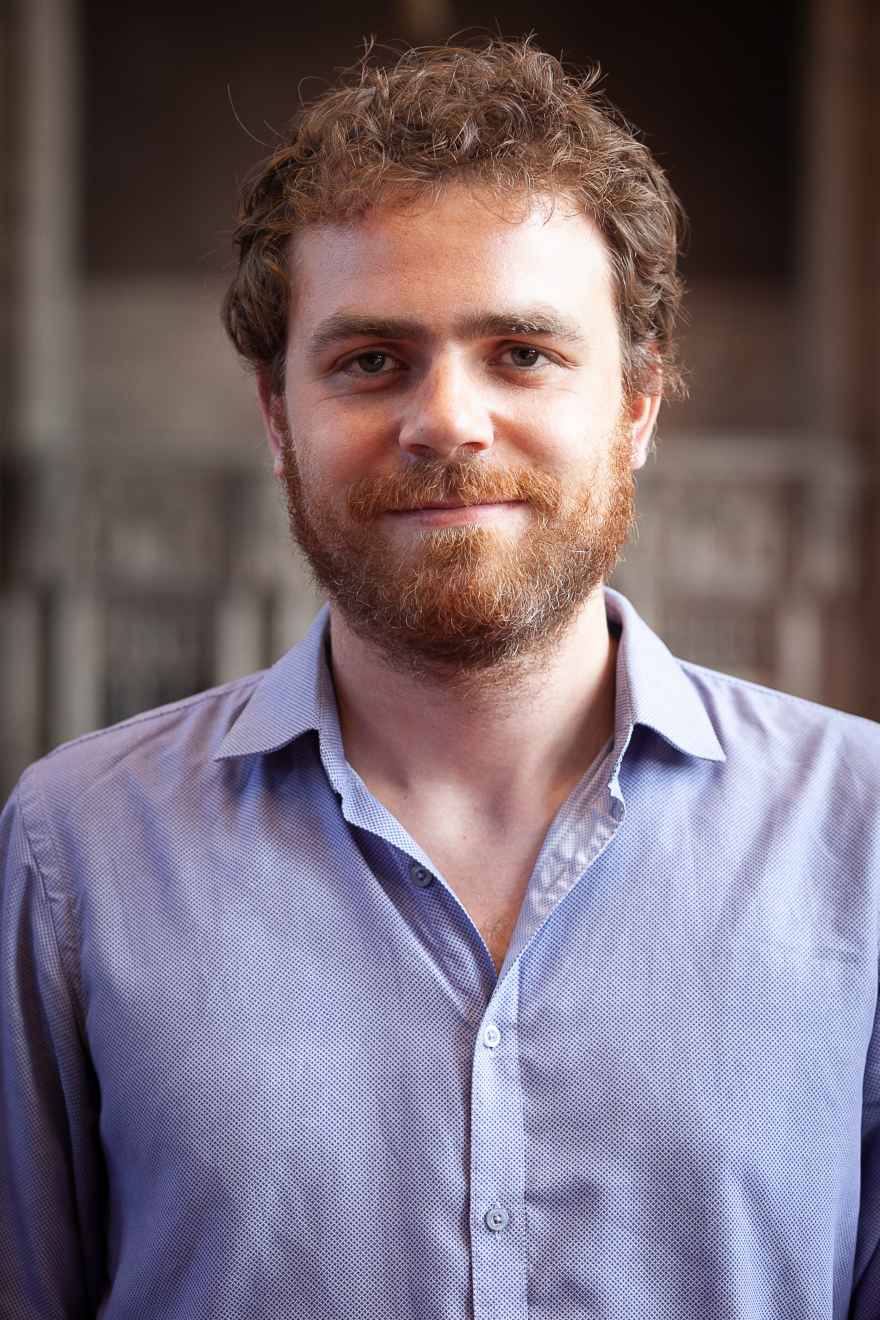Humanities Scholar Receives Prestigious Donnelley Fellowship to Cambridge College

By Sara Patterson
While Sam Lasman (PhD’20) works primarily in the Persian, Arabic, French, and Welsh languages, he dabbles in Latin, Irish, and old English. But it’s not only the multiple languages that intrigue him, it’s the access to medieval literature concerning the supernatural from the primary sources in different languages.
To further pursue medieval literature and languages, Lasman recently received the Gaylord and Dorothy Donnelley Research Fellowship, a postdoctoral exchange program for recent PhDs at the University of Chicago and Cambridge’s Corpus Christi College. The three-year fellowship allows Lasman to focus exclusively on his research, although he has leeway to teach courses at Corpus Christi College.
“To be on my own schedule for three years will be very productive for publications, books, and articles,” said Lasman, a Humanities Teaching Fellow who earned his doctorate in Comparative Literature and worked across interdisciplinary fields for his dissertation, Dragons, Fairies, and Time: Imagining the Past in Medieval Welsh, Persian, and French Narratives. “Through historical fiction, I look at how the global medieval world constructed identities and explored their origins. Authors in the Middle East and Europe fill their origin stories with strange and magical things, and those elements are important for understanding and interpreting the past.”
While Lasman decided to go to graduate school on a “whim,” he thought UChicago was his best option once he made up his mind. Over the past seven years, Lasman has thrived on the interdisciplinary culture he discovered here. His three Dissertation Committee advisers come from three different disciplines: religion, romance languages and literatures, and Near Eastern languages and civilizations. “I have learned so much from each of them and from studying at UChicago,” Lasman said.
His UChicago colleagues found Lasman to be intellectually mature right from the start. “Sam was able to immerse himself in his courses and excel in them,” said Michael Sells, one of his advisers and the John Henry Barrows Professor of Islamic History and Literature in the Divinity School and in the Department of Comparative Literature. “In many ways, Sam taught us as much as we taught him. I have no doubt that during his three years at Cambridge, he will deepen and widen his interests at the same remarkable trajectory as he did at UChicago.”
In addition to Sells, Lasman worked closely with UChicago faculty members Daisy Delogu and Franklin Lewis on his scholarship and dissertation. “Sam has an unusual linguistic scope and breadth of scholarship,” said Delogu, professor in the Department of Romance Languages and Literatures. “In addition to his knowledge of many languages, Sam has delved deeply into genre, time, and geography of the medieval cultures he studies. He will continue to accumulate languages and never run out of things that will interest him.”
Before graduate school, Lasman worked in theater as a dramaturg, which developed his sense of timing and honed the beauty in his writing. “For his research about parahumans, Sam has a keen sense of what questions haven’t been excavated and then he addresses them with fresh insights,” said Lewis, associate professor and chair in the Department of Near Eastern Languages and Civilizations. “With Sam, the medieval studies of parahumans are the first of many chapters in which he will go into radial directions into the niches where he can fill a gap.”
Lasman looks forward to working with scholars from Cambridge and delving into a different intellectual climate. Also, Corpus Christi College has the famed Parker Library, with a treasure trove of original medieval and Renaissance manuscripts and books, where Lasman will have access to rare documents.
The Gaylord and Dorothy Donnelley Fellowship will help Lasman bridge the gap between doctoral work and a tenure-track position. His UChicago colleagues have no doubt that he will flourish at Corpus Christi College.
“Sam is truly a Renaissance man when it comes to the global middle ages, and he will thrive in another intellectual network,” Lewis said.